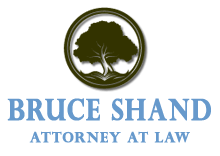Utah POD as a Estate Planning Tool- When PODs Go BAD
Are payable on death accounts a simple way to pass assets to heirs or are they a mistake? It sure sounds simple. With a payable on death account or paid on death account, you name a beneficiary who gets the account when you die—no probate, no hassle … How can they go awry? If they contradict an estate plan that’s already in place.
Things that appear simple can be complex. So it is in life, and so it is in estate planning. For example: the simple “payable on death” account.
Forbes recently featured this subject in an article titled “When Payable On Death Accounts Backfire.”
The promise of a “payable on death” account cannot be undersold. Funds subject to such an arrangement escape probate and transfer straight to the named beneficiaries. No muss, no fuss. Many are sold on this simple estate planning technique without being advised of the pitfalls.
Whenever an asset passes “outside” of your estate by avoiding probate, it may not be in sync with your overall estate plan. This is true when you really intend for all of your heirs to share in your estate equally. If you have any accounts “payable on death” to just one of your heirs, then he or she will receive more of your estate than intended.
Additionally, divorce can also effect these simplistic estate planning techniques. Mom and Dad get a divorce. Mom or Dad neglects to change the names on the POD accounts. Time passes and upon the death of Mom or Dad, the ex-spouse gets all of the funds in the POD accounts. Utah has a statute that attempts to remedy some of the consequences of this neglect (75-2-804). The statute, however, cannot effect the right of a survivor POD to an account. POD’s are contractual rights and are thus exempt from the remedial effect of the Utah Statute.
Perhaps you want a particular account “payable” to the heir who also will be your executor. Your thinking is that such a move will enable them to have ready cash for funeral and other final expenses when needed. To avoid misunderstandings and hard feelings, make your intentions clear in your estate planning legal documents. For example, you could provide that any proceeds left after your funeral and final expenses will become part of the inheritance for that heir with an adjustment made to equalize the shares of the other heirs under your estate plan.
In short, “payable on death” accounts and other direct methods to designate beneficiaries outside of your estate planning documents can be incredibly useful when used correctly. Unfortunately, it can also be downright counterproductive if they are not properly taken into account.
Reference: Forbes (August 9, 2013) “When Payable On Death Accounts Backfire“










Leave a Reply
Want to join the discussion?Feel free to contribute!